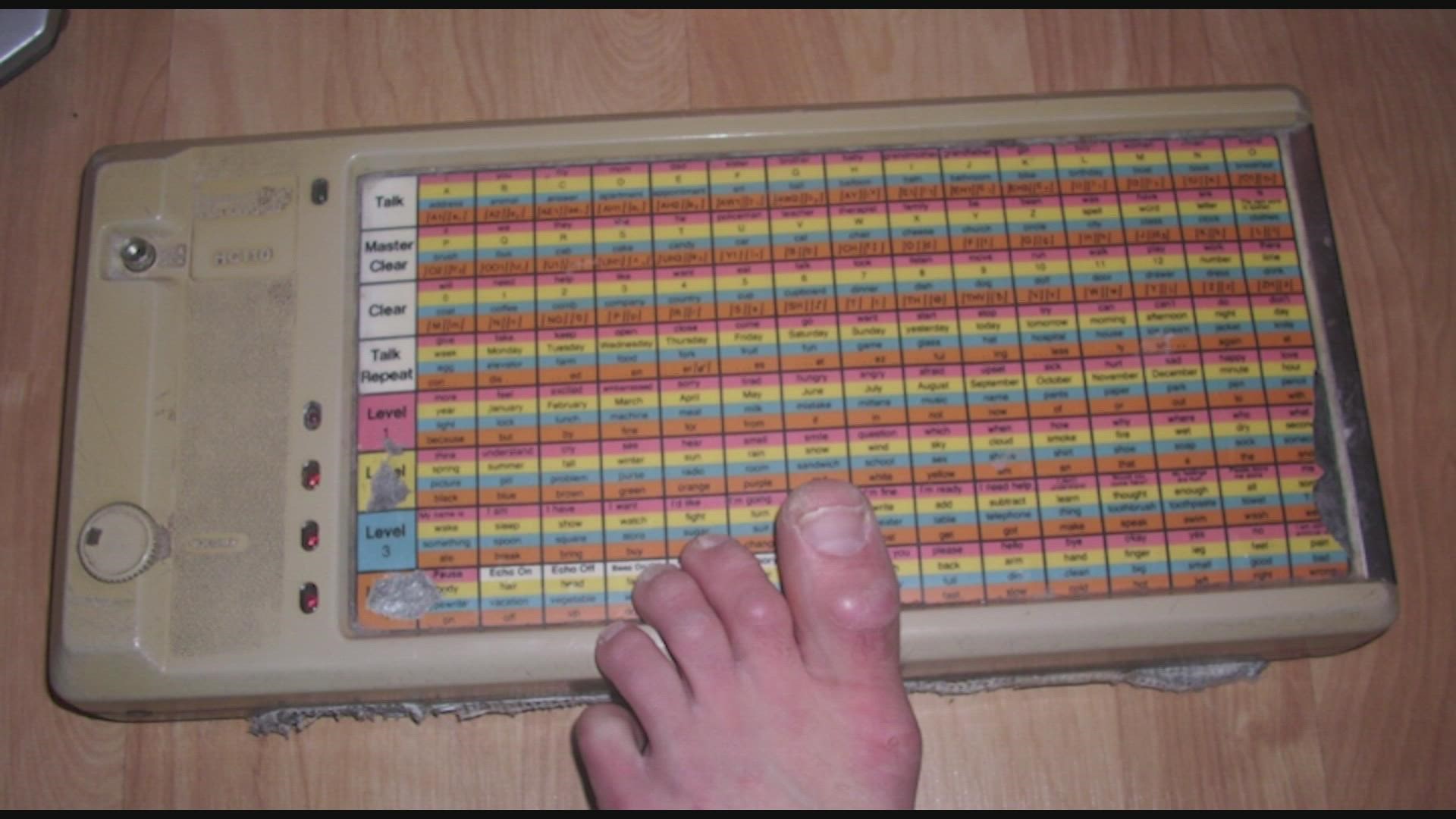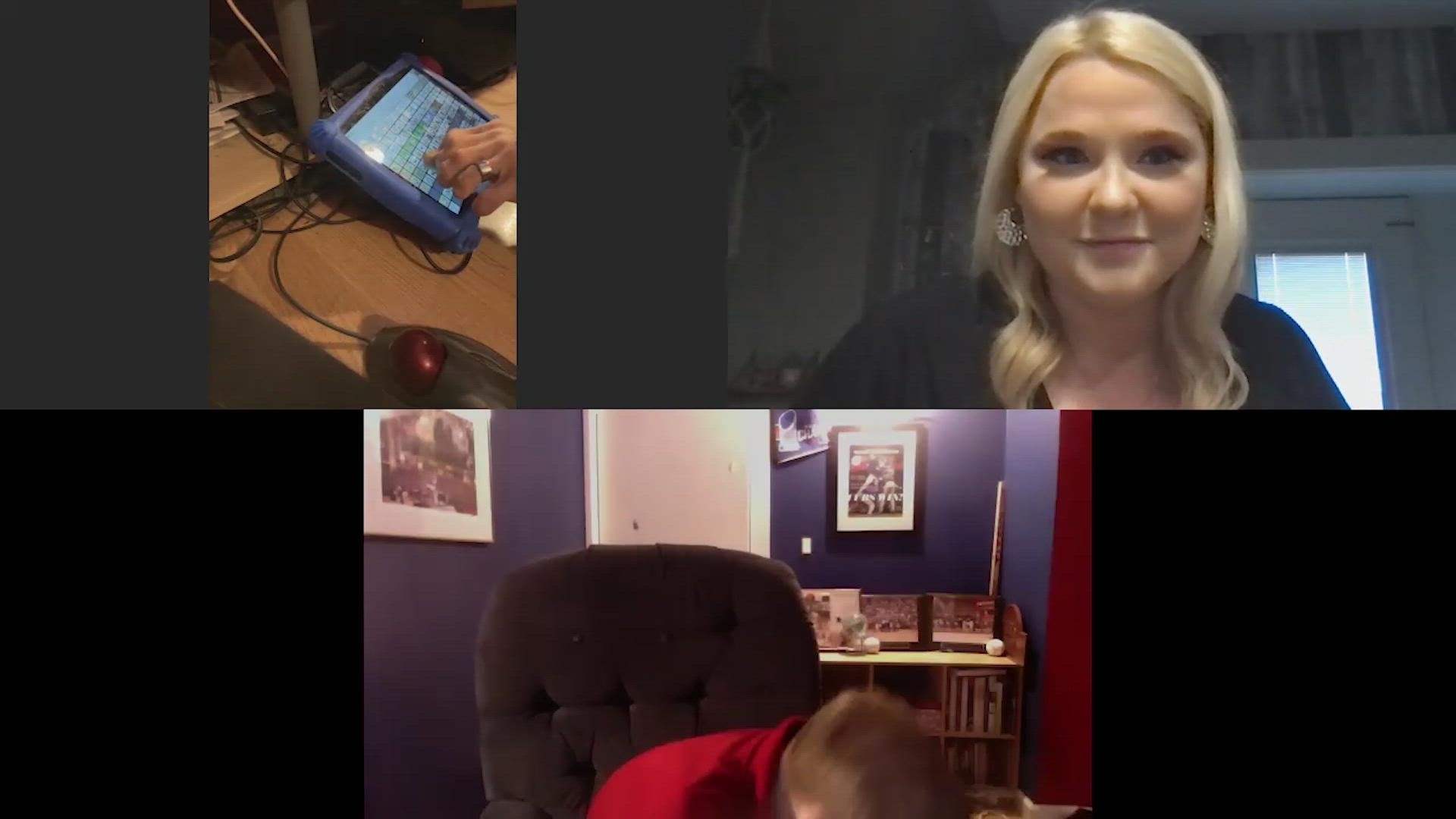HOLLAND, Mich. — Have you ever used the term 'special needs'? Although it's become a popular phrase to describe people with disabilities, some in the that community are speaking out to let others know the term can be offensive, and that it's time to shift our language.
Even though you don't hear his voice when you talk to him, Chris Klein is still speaking.
The Holland resident was born with Athetoid Cerebral Palsy, which means his muscles are constantly moving.
To communicate, Klein uses what's called Augmentative and Alternative Communication (AAC). His foot types the words he is saying, and he wants people to know he is different than anyone else.
"People talk to me loudly and slowly just because I communicate differently," he said, "and really I don't. Language is language and I just happen to access it differently."
Klein is a board member of the Disability Network Lakeshore.
And in recent times, the group is pushing to get rid of the phrase 'special needs.'
"From my perspective, 'special needs' really doesn't describe the person," Klein said, "it really doesn't describe the disability either, and really it is an offensive word to most with disabilities."
Amanda Rhines is the Executive Director of Disability Network Lakeshore.
She is pushing for this language change, too.
"The consensus really has been trending in this way," she said, "away from the idea of using 'special needs' to cover for some discomfort instead of just using the word disability."
"People with disabilities are not uncomfortable with the word disability," Rhines added, "and in fact they're proud that they have a disability."
Rhines' said this thought is not universal and the language shift is subtle, but it's enough to make a change if it only offends one person.
"We're not out here trying to be the word police, or make people uncomfortable," she said, "we just really want people to be aware of the impact their words might be having."
So what words or terms should be used instead? Rhines calls it 'person-first' language.
"So you'd say 'a person with a disability' as opposed to 'a disabled person,'" she explained.
Chris Klein said that because language is so powerful and important to everyone, "it is time to change that language from disability to abilities."
"We all have abilities, and we all have disabilities to a point," he said, "and many of us can hide our weaknesses."
Klein said he can't hide his weakness, and that's the frustrating part.
"Because people see the disability right away, and write me off before getting to know what abilities that I do have," he said.
Klein said he just wants people to act like themselves when they see him or meet him, and not separate those with disabilities into another category.
"I want people to know that they shouldn't judge somebody by appearance," he said, "because really we don't know the person until you get to know them, like myself."
You can learn more about Chris Klein and AAC by clicking here.
You can also see more of how Klein communicate by using his toes by watching part of his interview with 13 ON YOUR SIDE's Keely Lovern below.
►Make it easy to keep up to date with more stories like this. Download the 13 ON YOUR SIDE app now.
Have a news tip? Email news@13onyourside.com, visit our Facebook page or Twitter. Subscribe to our YouTube channel.


